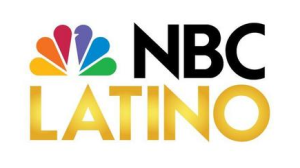Exclusion of Ethnic Studies Robs Latino Children of Pride

By Stephen A. Nuño, NBCLatino 
Conservative leaders seem intent on ensuring that Latinos grow up without a sense of pride in their identity. The historical roots of our relationship with the majority in this country is indeed marked by hatred, resentment, condescension, and an assumption of inferiority, and that national narrative has a debilitating impact on our children’s ability to understand why Latinos have higher poverty rates, higher teenage pregnancy rates, and lower educational achievement.
Conservatives prefer that Latinos are taught that the illnesses of our community are self-inflicted, or a result of our inability to be more like them. That is not true, and an education that instead instills a sense of pride in our history would add important context to understanding how we can improve our communities. And this pride has a ripple effect across disciplines, like math and science.
Indeed, the Mexican-American Studies program in Tucson did just that. Students who enrolled in the MAS program did demonstrably better not only in the arts and literature, but in disciplines conservatives keep saying are important to succeed in the modern world.
Yet attempts to study Mexican-American programs are being attacked across the country where we are trying to carve out safe space to feel that important sense of pride. Measures filed in Texas would change a 1955 state law to stipulate that only courses that give a “comprehensive survey” of American history or Texas history would count toward the six history credit requirement, erasing the need to focus on subjects that focus on race, class, and gender which help Latinos better understand how systemic inequalities pervade throughout minority communities.
The conservative vision of education intently narrows our vision of reality, limiting our capacity to understand our own problems within a narrative we can connect to.
And so it wasn’t surprising to learn that a court had upheld most provisions of an Arizona state law used to prohibit Mexican-American Studies curriculum in Tucson last week. The Mexican-American Studies program has long been the object of scorn among the majority who find it a danger to obscure the injustices of our society.
Republican Representative Nora Espinoza of New Mexico reacted to the ban on Mexican-American Studies by saying, “These are are extremely racist and hate books”.
Perhaps it doesn’t dawn on Ms. Espinoza that when people are systematically discriminated against, an historical account of that might seem resentful. It may seem ironic that a Hispanic representative would be hostile against Mexican American Studies because it exposes students to the realities of our country’s history, but she is a testament to the power of an education system that perpetuates our ignorance of these events.
But while this temporary reprieve from reality helps to delay the inevitable time when white folks won’t dominate the narrative of our history, this will be yet another chapter in the history books our grandchildren will almost certainly read in the normal curriculum of their time.
Mexican-American Studies lost a temporary battle in the fight to own the story of our own forefathers, and it will be wise to use this loss to explore ways different perspectives can be integrated into the regular curriculum. It’s exclusion from our curriculum is precisely why Mexican-American Studies has been necessary, but it won’t be long until the narrative changes. And when it does, it will not look back fondly on the Espinoza’s of our new worldview.
This article was first published in NBCLatino.
Stephen A. Nuño, Ph.D., NBC Latino contributor and an Assistant Professor in the Department of Politics and International Affairs at Northern Arizona University. He is currently writing a book on Republican outreach into the Latino Community.
[Photo by mediafreedominternational.org]

